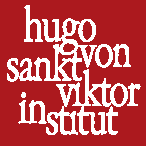SUBPROGRAMMA ACCIONES INTEGRADAS. MINISTERIO DE CIENCIA E INNOVACIÓN / DAAD
Discovering Religion as a Historical Phenomenon:
Changes in the Perception of Judaism, Christianity and Islam in the Middle Ages
Changes in the Perception of Judaism, Christianity and Islam in the Middle Ages
1. State-of-the-Art
The encounters of Christians, Jews and Muslims during the Middle Ages had important consequences for the perception not only of one's own religious belief and faith but also for the concept of religion itself.
Dialogue with, and polemics against, representatives of others faiths, such as Islam and Judaism, obliged Christian theologians and philosophers to reconsider religious experience in general. One of the most important issues in this reconsideration was the discovery of the historical and cultural dimensions of what we call nowadays ‘religion’.
The awareness of the historicity of the religions – referring to other faiths as well as to one's own – is, beyond any doubt, a decisive element for finding a way, even nowadays, to deal with religious diversity. The idea of the historicity of religion, which emerges in the Middle Ages and was further developed during the Age of Enlightenment, points to the need to conceive of the dialogue between the religions not simply as a two-player-game, i.e. between faith and reason, but to acknowledge that religions are part of a far more complex historical and political process. Yet scholarly research so far has not thoroughly studied the intricate relations between faith, reason and history in medieval interreligious contacts, perceptions and dialogues. Considering the discovery of the historical dimension of religion will also contribute substantially to our understanding of the cultural flows between the three monotheistic religions of the Mediterranean world.
2. Contents, Methods and Results
Our project will analyze the conditions leading to this new awareness of religions as historical phenomena as well as the consequences of the discovery of their historicity for the different approaches towards other religions. We shall focus on how - through their discussions with believers from other faiths – medieval authors develop an increasing awareness of the fact that religious beliefs are strongly conditioned by the individual's socialization and education. It will be shown that this insight into the nature of religion as a socio-historical and cultural phenomenon, which can be traced back to the 11th and 12th centuries, plays an important role for both the refutation of Islam (and, to a lesser degree, of Judaism) and the defence of the Christian faith. For, on the one hand, Christians used historical arguments to unveil the supposedly purely human origin of Islam as a sect instituted by man (and not revealed), while, on the other hand, they also brought in historical arguments to authenticate the Christian revelation. In these disputes, history gradually receives recognition as a valid argumentative device reconciling the extremes of authoritative and rational argumentation.
Our approach is many-fold. We shall focus on central thinkers, various periods and several systematic questions. In particular, research will be conducted on Latin Iberian historians (8th to 11th centuries) discovering Islam as a religious system (Dr. Matthias M. Tischler), Ibn Hazm (994–1064) and his position on faith and reason in religious thought (Ms. Andrea Baer, M.A.), Peter the Venerable (1092/94–1156) and the Latin translations of historical texts and chronicles, e.g. the Chronica mendosa and the Liber de generatione Mahometi (Dr. Óscar de la Cruz), Robert of Ketton (fl. 1141–1150) and the glosses to his Latin translation of the Qur'ān (Dr. José Martínez Gázquez), Arnau de Vilanova (c. 1240–1311) and his dating of the end of the age of Islam (Dr. Jaume Mensa), Ramon Llull (1232–1316) and his draft for a history of religions (Dr. Alexander Fidora), the Franciscan milieu (13th–14th C.) and the importance of millenarism for the perception of the history of religions (Dr. Cándida Ferrero), and finally Pope Benedict XIII (d. 1423) and the role that played his special libraries of (anti)heretical literature for his religious thinking (Mr. Christoph Körner, Dipl. Theol.).
The cooperation of the Spanish and German groups promises interdisciplinary research at its best. It will bring together proven abilities in Philosophy (Baer, Fidora, Mensa), Theology (Körner, Mensa), History (Körner, Tischler), Classical Studies (de la Cruz, Ferrero, Martínez Gázquez, Tischler), Oriental Studies (Baer), and Romance Philology (Ferrero, Fidora, Tischler).
We expect that the historic-philological and philosophical perspective of the Spanish group on the one hand and the German team's expertise in the fields of the history of theology as well as in religious and oriental studies (including Judaism and Islam) on the other hand, will complement each other in a very productive way, producing highly relevant results which can only be obtained through interdisciplinary and multilingual cooperation on an international scale.
The project will give the possibility to several young and very talented researchers to broaden their intellectual horizon in an expanding European research community. Our purpose is to establish a long-term research network.
3. Colloquium and Publication
We are preparing a colloquium held in Barcelona, may 2010, which will deal with the awareness of the historicity of the religions in the Middle Ages. We intend to publish the papers of this Workshop.
4. Reports
Report for 2009: German Version. Spanish Version
Further information can be obtained from:
Prof. Dr. Alexander Fidora
Departament de Ciències de l'Antiguitat i de l'Edat Mitjana
Universitat Autònoma de Barcelona
Edifici B
08193 Barcelona
Spain
E-Mail:
PD Dr. Matthias M. Tischler
Philosophisch-Theologische Hochschule Sankt Georgen
Hugo von Sankt Viktor-Institut
Offenbacher Landstr. 224
60599 Frankfurt am Main
Germany
E-Mail:

